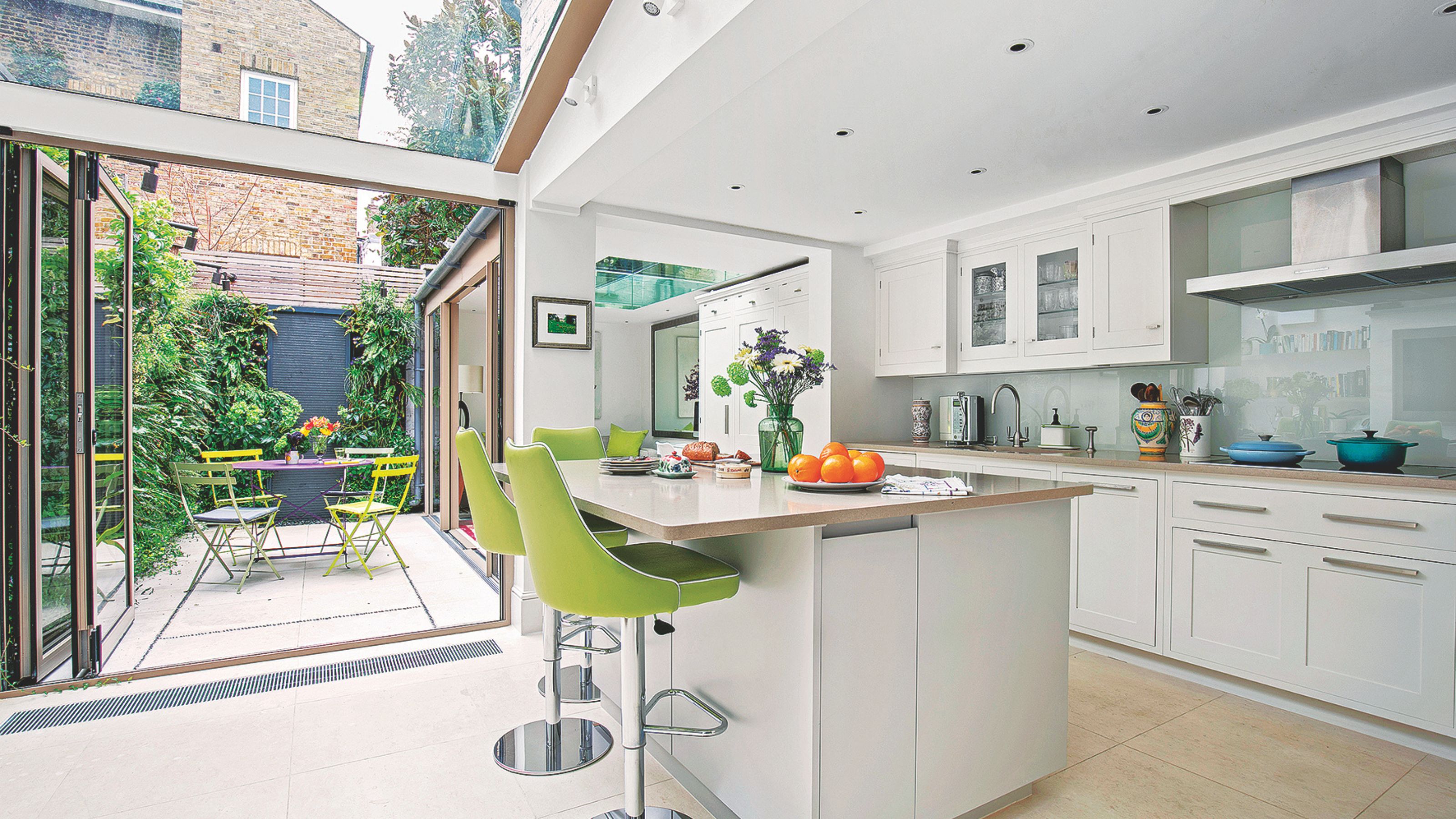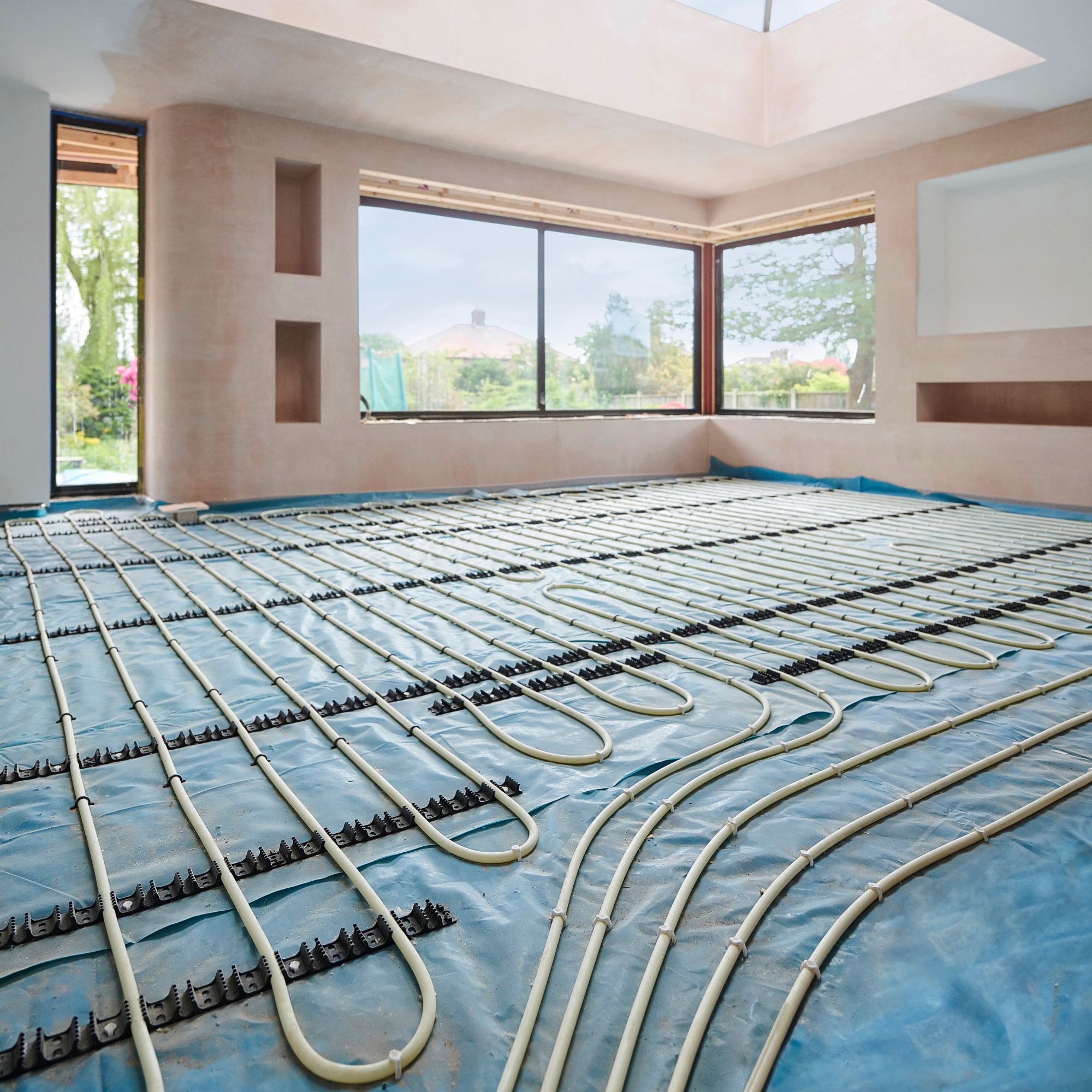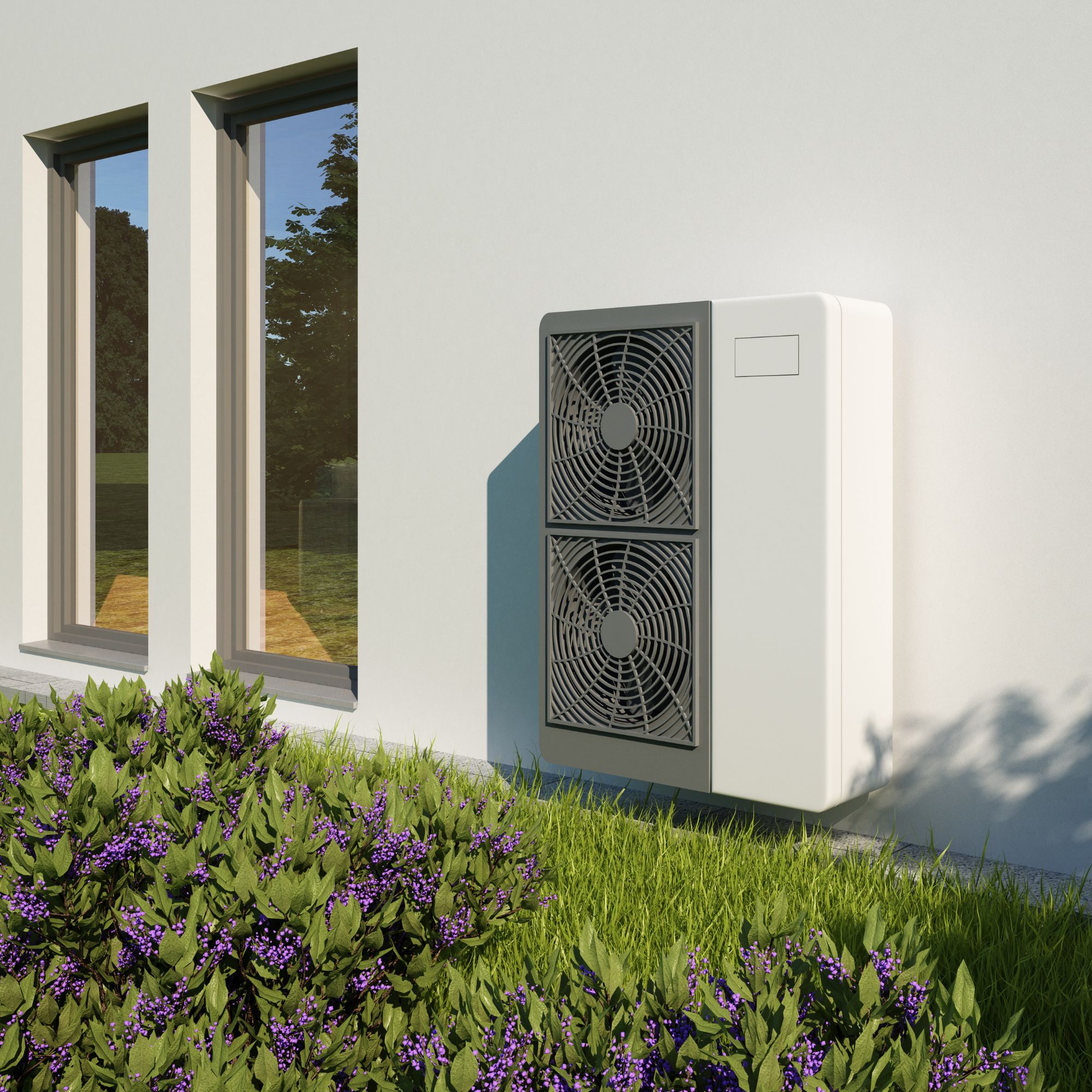What does underfloor heating run off? These are the heat source options that work, and the one that experts agree is the best
Everything you need to know


If you're considering adding underfloor heating to your home, you'll need to have a clear understanding of what underfloor heating runs off to ensure you're using the most suitable heat source.
Underfloor heating is a popular choice for renovators and extenders alike. One of the main pros of underfloor heating is its energy efficiency, and choosing the right source of heat for this kind of emitter can help you boost that efficiency, reducing both your energy usage and your bills.
But what are the options when it comes to a heat source for underfloor heating, what should be considered, and which is best? I asked underfloor heating experts to find out.
What does underfloor heating run on?

Wet underfloor heating can use a boiler, or renewable option, like a heat pump, as a heat source.
When it comes to what underfloor heating runs off, the answer will depend on the type of system in question — wet or dry.
With dry (also known as electric) underfloor heating, the answer is clear cut. 'Electric underfloor heating comes off your electricity supply, and can be partly supplied by any solar panels you have (though your solar panels tend not to be that productive in the winter when you want your underfloor heating on!),' says Simon Bones, CEO and Founder at Genous.
When it comes to wet underfloor heating, it's closer to a traditional heating system, as Simon explains: 'Wet systems just work like radiators, except the warm water is pumped under your floor in coiled pipework rather than through a radiator, and the flow temperature tends to be lower (both because the floor is a bigger area so emits more heat than a small radiator at a given temperature and because otherwise you’d burn your feet!).'
'Wet UFH systems can be powered by several heat sources, including gas boilers, electric boilers and heat pumps,' continues Ben Perris, Head of Sales for Indoor Climate Solutions at Wavin. 'The best choice for your home can depend on a variety of factors such as the existing heating system, floor insulation levels, available space, budget, and your sustainability goals.'
Sign up to our newsletter for style inspiration, real homes, project and garden advice and shopping know-how
What's the best heat source for underfloor heating?

Experts agree that a heat pump is the best heat source for underfloor heating. While air source heat pumps, like this one, are good, one argues that a ground source heat pump is best
While electricity is your only option for electric underfloor heating, the options for wet underfloor heating can leave you wondering which one is best. And the experts I spoke to unanimously agreed that a heat pump is the best heat source for wet underfloor heating.
'The most energy efficient choice of heat source to run with water underfloor heating is a heat pump, and likely a ground source heat pump, or one that uses a communal ground loop due to its seasonal stability,' says Sam Jump, Head of Business Development at Wunda Group PLC. 'When paired with low temperature heating systems like underfloor heating heat pumps are far more efficient than boilers because they can run at their optimum low temperature and deliver maximum efficiency.
'Heat pumps move heat from one place to another (from the ground or outside air), rather than generating all the heat from fuel or electricity. Heat pumps use on average one unit of energy to move 3 - 6 units of thermal energy. Compared to a traditional boiler that uses one unit of energy to make at best 0.95 units of heat.'
However, if you are looking to keep your upfront underfloor heating costs as low as possible, you can still use your boiler and still benefit from some improved efficiency. Sam explains: 'Pairing a boiler with an underfloor heating system can also improve the boilers efficiency, as the boiler can be turned down to a lower flow temperature than radiators allowing condensing boilers to work in condensing mode.'
On the other hand, if you have the budget and want to maximise the efficiency of your heating system by swapping to a heat pump, you may need to make extra considerations. Simon warns: 'If you’re only putting underfloor [heating] in some of the home, though, you normally need to upgrade some of the radiators in the rest to benefit from the heat pump to the greatest extent possible.'
Read our guide if you want to know more about how efficient underfloor heating is.

Sarah Handley is Ideal Home’s Renovation Editor. She joined the team full time in September 2024, following three years of looking after the site's home finance content. As well as all things renovation, Sarah also looks after our Home Energy content, which covers all aspects of heating and insulation as well as tips on how homeowners can reduce their energy usage. She has been a journalist since 2007 and has worked for a range of titles including Homebuilding & Renovating, Real Homes, GoodtoKnow, The Money Edit and more.